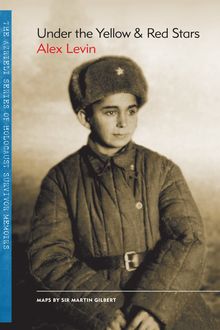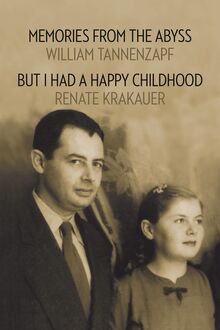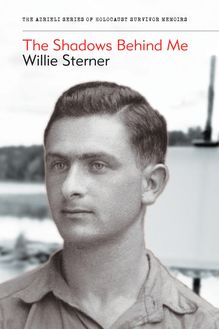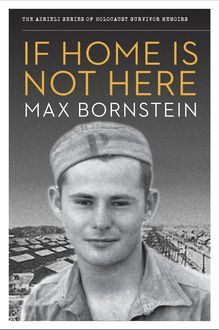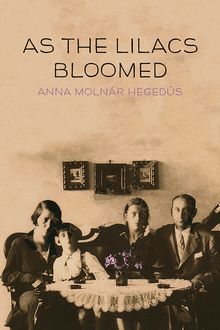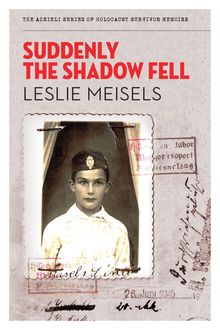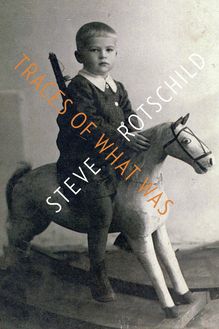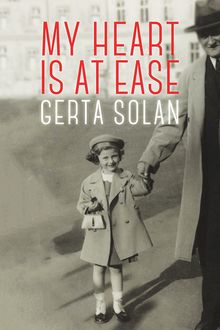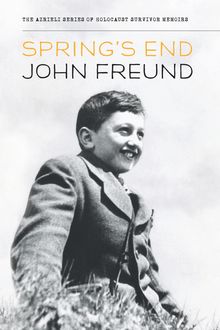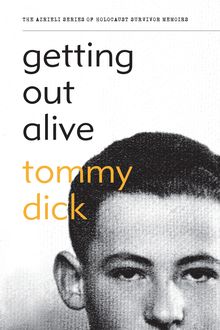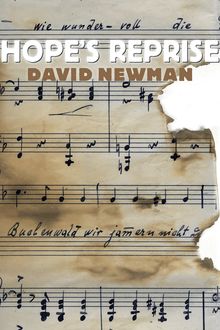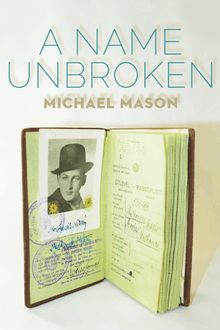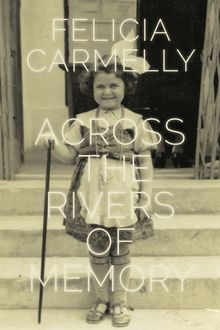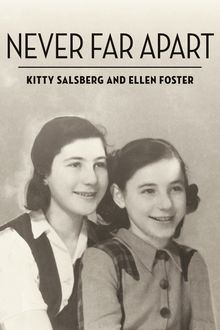-
 Univers
Univers
-
 Ebooks
Ebooks
-
 Livres audio
Livres audio
-
 Presse
Presse
-
 Podcasts
Podcasts
-
 BD
BD
-
 Documents
Documents
-
- Cours
- Révisions
- Ressources pédagogiques
- Sciences de l’éducation
- Manuels scolaires
- Langues
- Travaux de classe
- Annales de BEP
- Etudes supérieures
- Maternelle et primaire
- Fiches de lecture
- Orientation scolaire
- Méthodologie
- Corrigés de devoir
- Annales d’examens et concours
- Annales du bac
- Annales du brevet
- Rapports de stage
La lecture à portée de main
Vous pourrez modifier la taille du texte de cet ouvrage
Découvre YouScribe en t'inscrivant gratuitement
Je m'inscrisDécouvre YouScribe en t'inscrivant gratuitement
Je m'inscrisEn savoir plus
Vous pourrez modifier la taille du texte de cet ouvrage
En savoir plus

Description
Sujets
Informations
| Publié par | Azrieli Foundation |
| Date de parution | 01 septembre 2009 |
| Nombre de lectures | 3 |
| EAN13 | 9781897470619 |
| Langue | English |
| Poids de l'ouvrage | 1 Mo |
Informations légales : prix de location à la page 0,0300€. Cette information est donnée uniquement à titre indicatif conformément à la législation en vigueur.
Extrait
Under the Yellow & Red Stars
Alex Levin
The Azrieli Series of Holocaust Survivor Memoirs
SERIES II: SENIOR EDITORIAL BOARD
Sara R. Horowitz, Chair Irving Abella Naomi Azrieli Michael Brown Janet Webber Mark Webber
Editors for this volume: Naomi Azrieli and Andrea Knight
Andrea Knight, Managing Editor Elin Beaumont, Program Coordinator Aurélien Bonin, Research & Translation Erika Tucker, Program Assistant Jody Spiegel, Executive Coordinator
Tamarah Feder, Managing Editor & Program Manager (2005–08)
Mark Goldstein, Art Director Maps by Sir Martin Gilbert and François Blanc
Contents
Series Preface: In their own words...
Introduction
Author’s Preface
In the Shtetl of Rokitno
Our Flight from the Rokitno Massacre
We Take Shelter in the Forest
Out of the Woods
The Suvorov Military School
My Military Career
The Khruschev Era
Intrigue Rears Its Unwelcome Head
The Events of an Unnatural Life
Building a Future
In a New Country
Epilogue: Our Journey to the Places under the Yellow Stars
Appendices
Glossary
Maps & Photographs
Index
Copyright
About the Azrieli Foundation
Also Available
Series Preface: In their own words...
In telling these stories, the writers have liberated themselves. For so many years we did not speak about it, even when we became free people living in a free society. Now, when at last we are writing about what happened to us in this dark period of history, knowing that our stories will be read and live on, it is possible for us to feel truly free. These unique historical documents put a face on what was lost, and allow readers to grasp the enormity of what happened to six million Jews – one story at a time.
David J. Azrieli , C.M., C.Q., M.Arch Holocaust survivor and founder, The Azrieli Foundation
Since the end of World War ii, over 30,000 Jewish Holocaust survivors have immigrated to Canada. Who they are, where they came from, what they experienced and how they built new lives for themselves and their families are important parts of our Canadian heritage. The Azrieli Foundation’s Holocaust Survivor Memoirs Program was established to preserve and share the memoirs written by those who survived the twentieth-century Nazi genocide of the Jews of Europe and later made their way to Canada. The program is guided by the conviction that each survivor of the Holocaust has a remarkable story to tell, and that such stories play an important role in education about tolerance and diversity.
Millions of individual stories are lost to us forever. By preserving the stories written by survivors and making them widely available to a broad audience, the Azrieli Series of Holocaust Survivor Memoirs seeks to sustain the memory of all those who perished at the hands of hatred, abetted by indifference and apathy. The personal accounts of those who survived against all odds are as different as the people who wrote them, but all demonstrate the courage, strength, wit and luck that it took to prevail and survive in such terrible adversity. The memoirs are also moving tributes to people – strangers and friends – who risked their lives to help others, and who, through acts of kindness and decency in the darkest of moments, frequently helped the persecuted maintain faith in humanity and courage to endure. These accounts offer inspiration to all, as does the survivors’ desire to share their experiences so that new generations can learn from them.
The Holocaust Survivor Memoirs Program collects, archives and publishes these distinctive records and the print editions are available free of charge to libraries, educational institutions and Holocaust-education programs across Canada, and to the general public at Azrieli Foundation educational events. Online editions of the books are available free of charge on our web site, www.azrielifoundation.org .
The Azrieli Foundation would like to express appreciation to the following people for their invaluable efforts in producing this series: Mary Arvanitakis, Josée Bégaud, Florence Buathier, Franklin Carter, Mark Celinscack, Darrel Dickson (Maracle Press), Andrea Geddes Poole, Sir Martin Gilbert, Pascale Goulias-Didiez, Stan Greenspan, Karen Helm, Carson Phillips, Pearl Saban, Jody Spiegel, Erika Tucker, Lise Viens, and Margie Wolfe and Emma Rodgers of Second Story Press.
I dedicate this book to my only daughter, Yelena, and my grand-children, Jonathan and Michaela, so that they know about their roots and pass this story on to their children and grandchildren.
I also dedicate this book to the Righteous among the Nations who risked their lives to save Jews; to the Holocaust survivors and their efforts to rebuild their shattered lives; and to my fellow cadets for their friendship through the years.
I would like to thank my wife, Marina, and my brother Samuel for their patience and support during my life journey, and Craig Dershowitz, Howard Cooper, Eugene Grin-Gnotovsky and the staff of Azrieli Foundation for their assistance and advice.
Introduction
Every night, after dark, we crawled cautiously into stacks of hay in the fields, covering ourselves so that the only opening was a small breathing hole. Sometimes we secretly spent the nights in a tool shed. No matter what the circumstances, we were always terrified that we might be caught….
So writes Alex Levin, recollecting the routine terrors of his tenth year of life and drawing us into events and experiences almost unimaginable from the perspective of a safe and sane society years later. From an idyllic childhood in the heart of a “strong and loving family” to a desperate existence fleeing the Nazi genocide, to a military career in the antisemitic post-war Soviet Union, to new roots on Canadian soil, Alex Levin’s life bears the tracks of momentous historical shifts. If, as Elie Wiesel reminds us, every Holocaust survivor has a unique story to tell, Alex Levin’s story is extraordinary.
Alex Levin – then called Joshua Levin – was born in 1932 in Rokitno, a small town in Poland of five thousand inhabitants. Set in what he describes as “majestic and beautiful surroundings,” Levin’s early years were bucolic. He lived in a large house with a garden and domestic animals and swam in the river that flowed through the town. He enjoyed exploring the lush oak woods nearby – forests that would soon play a key role in his life and very survival.
In 1939 approximately 3.3 million Jews lived in Poland, by far the largest Jewish population of any country in Europe. Jewish cultural and religious life had flourished there for hundreds of years. Compared to the Jewish experience elsewhere in Europe and Russia, Polish Jews had lived in relative peace with their neighbours. The Jews of Poland were able to develop important religious and national movements, to establish renowned centres of religious learning, and to develop the rich cultural heritage of the Yiddish language – the daily language of Eastern European Jews. By the middle of the twentieth century, the Jews of Poland could boast a distinctive literary tradition that encompassed Yiddish fiction, poetry, theatre and cinema. Moreover, as Poland modernized and urban centres grew, many professions and industries became less restrictive, and opportunities for Jews opened up.
Jewish life in Poland was full of contradictions, however. Polish Jews were often subject to discrimination and persecution, and even physical assault by their non-Jewish neighbours who harboured prejudice against them. With the rise of Polish nationalism between the two world wars, ethnic minorities – Jews among them – found themselves the target of discriminatory practices. Even though the Polish constitution guaranteed the rights of minorities, Jews were barred from holding jobs in government, one of the largest employers at the time. With the impact of the world-wide economic Great Depression that began in the early 1930s, the condition of Polish Jews steadily worsened.
Yet Alex Levin remembers a comfortable and happy upbringing amid Rokitno’s 2,000-member-strong Jewish community. As a child, little Shike – a nickname for Yehoshua – was aware of, but not directly touched by, the pernicious anti-Jewish sentiments around him. Like many Jews in the small towns and villages of Poland, Levin’s family valued religious education, observed Jewish holidays and other rituals, and savoured the special taste of Sabbath foods. Zionism – the movement to build a Jewish state in the Jews’ historic homeland, then under control of the British – was also important to his family. Levin fondly recalls meeting with his youth group, Betar, on the edge of town, singing Hebrew songs and listening to stories of Jewish heroes in their homeland. Founded in 1923 in Latvia, Betar was one of several youth groups that played an important role in the history of Polish Jews in the inter-war period. These groups fought antisemitism and fostered a sense of Jewish identity. Their leaders later played an active part in Jewish resistance in the ghettoes and camps during the war. The youth group gatherings were, in Levin’s words, a “magical” time in his life.
In September 1939, everything changed. On September 1, the German army invaded Poland from the west; on September 17, the Soviet army moved in from the east. In late August, Hitler and Stalin had reached an agreement to divide Poland between their two countries. Rokitno, Levin’s home town, fell under
-
 Univers
Univers
-
 Ebooks
Ebooks
-
 Livres audio
Livres audio
-
 Presse
Presse
-
 Podcasts
Podcasts
-
 BD
BD
-
 Documents
Documents
-
Jeunesse
-
Littérature
-
Ressources professionnelles
-
Santé et bien-être
-
Savoirs
-
Education
-
Loisirs et hobbies
-
Art, musique et cinéma
-
Actualité et débat de société
-
Jeunesse
-
Littérature
-
Ressources professionnelles
-
Santé et bien-être
-
Savoirs
-
Education
-
Loisirs et hobbies
-
Art, musique et cinéma
-
Actualité et débat de société
-
Actualités
-
Lifestyle
-
Presse jeunesse
-
Presse professionnelle
-
Pratique
-
Presse sportive
-
Presse internationale
-
Culture & Médias
-
Action et Aventures
-
Science-fiction et Fantasy
-
Société
-
Jeunesse
-
Littérature
-
Ressources professionnelles
-
Santé et bien-être
-
Savoirs
-
Education
-
Loisirs et hobbies
-
Art, musique et cinéma
-
Actualité et débat de société
- Cours
- Révisions
- Ressources pédagogiques
- Sciences de l’éducation
- Manuels scolaires
- Langues
- Travaux de classe
- Annales de BEP
- Etudes supérieures
- Maternelle et primaire
- Fiches de lecture
- Orientation scolaire
- Méthodologie
- Corrigés de devoir
- Annales d’examens et concours
- Annales du bac
- Annales du brevet
- Rapports de stage
